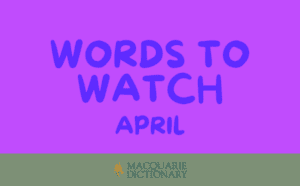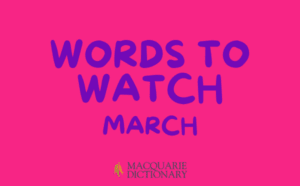In Newtown, Sydney, there is a sign near the train station that reads ‘the land of the Cadigal people of the Eora nation’. In Stanmore, Sydney, about 2km away, there is a sign that proclaims ‘the land of the Gadigal people of the Eora nation’.
This is the same Indigenous group, so why are there different spellings?
The important factor at play here is the difference between orthography and pronunciation.
Orthography is the word used to refer to a language’s spelling system. Pronunciation is the way the words are spoken. Both of these have an effect on why it can be spelt Gadigal or Cadigal.
So we’re going to start with pronunciation.
The first step to understanding the difference is a little exercise. Try saying both Cadigal (with a ‘k’ sound at the start) and Gadigal (with a ‘g’ sound) out loud. Then say them 5 times fast. They’ll sound similar, but you can probably still hear the difference. Now, just say the ‘k’ sound and then the ‘g’ sound, but put your fingers on your Adam’s apple when you do. Notice the difference? When you say the ‘g’ sound, you should feel it vibrate slightly. With ‘k’ it will not.
In linguistics, this is called voicing, where the vocal cords vibrate while producing a sound. The ‘g’ sound is voiced, so you can feel the vibration, while the ‘k’ sound is unvoiced, so there is no vibration. Apart from voicing, these two sounds are identical — your tongue, lips, etc., are doing all the same things. It’s the vibration of the vocal cords that differentiates them.
In English this difference is important — it is used to distinguish meaning — game and came are clearly different words.
But, in many Indigenous languages, this voicing does not make a distinguishing difference in meaning. So if you pronounce Gadigal with a ‘k’ sound or a ‘g’ sound — it is still the same word. It retains exactly the same meaning, despite the different sound.
So why don’t we just use the same spelling?
This is where we move into the orthographic part of the answer.
As any English speaker who has been in a spelling bee, been stuck without spellcheck, or tried to learn a foreign language like French knows, orthography often isn’t perfect.
Recommendation has two m’s in it – but it’s not pronounced recom-mendation. Gnome has a silent ‘g’ in it, and knight a silent ‘k’. This is because the Latin alphabet was not crafted for English — it was adapted for English (and French as well). Prior to colonisation, Indigenous languages were oral. The English-speaking settlers who were the first to write down Indigenous languages naturally used the English alphabet. The spelling of many Indigenous words is what an English speaker believed they heard when listening — and English speakers distinguish between ‘k’ and ‘g’. So, they wrote what they thought they heard, leading to some wild inconsistencies in records.
It’s important to remember that Indigenous Australian languages are actually different languages, despite being written in the same alphabet as English. Like French words in English, they don’t necessarily follow the same rules, and the spelling doesn’t always match perfectly to the pronunciation.





